#Separating my beliefs from my race and culture is impossible; at least if I would like to preserve authenticity;
Explore tagged Tumblr posts
Text
Religious/spiritual bipoc youth who have to grapple with generational trauma, religious guilt, and on top of that their own peers giving them a hard time for being religious/spiritual because it makes them "the enemy" or whatever... yea
#I was having thoughts last night#Usually I don't like stating my details; it makes me feel like I'm trying to appeal to something when my words are too weak;#but I don't want to make it sound like I'm speaking from nowhere; I'm very much speaking from somewhere#I'm African American with an Indigenous Caribbean background and I grew up Catholic with various spiritual beliefs#Separating my beliefs from my race and culture is impossible; at least if I would like to preserve authenticity;#but it seems like not everyone is on the same page about this at all#I'm not saying people should be forced to be happy about religion and religious institutions; they have issues aplenty;#but I am very much saying that religion and spirituality as a whole plays a major role in culture#and that if you want to appeal to poc you need to be willing to at least be accepting of people who practice religion and spirituality#Open-mindedness and respect is very useful; I don't see enough open-mindedness and respect; but that's the old person in me talking#People are too quick to be mean and judgmental; funny enough that's where a lot of microagressions come from#Like I have news for all the people who attacked me as a religious person and not as a racial minority; metaphorically
3 notes
·
View notes
Text
My favourite books in my personal library: (in completely random order)
The Little Prince by Antione de Saint Exupery. 111pg
'The little prince lived alone on a tiny planet no larger than a house. He owned three volcanoes, two active and one extinct. He also owned a flower, unlike any flower in all the galaxy, of great beauty and of inordinate pride. It was this pride that ruined the serenity of the little prince's world and started him on the interplanetary travels that brought him to earth, where he learned, finally, from a fox, the secret of what is really important in life.'
OH, my heart-. This absolute journey of a story is impossibly dear to me. I always pull it out when I need a reminder to grow old, but never grow up; and how stupid grown-ups can be. I've read this at least 7 times and watched the corresponding movie at least 5 times. It puts such a thrilling perspective on things I have had to fight with myself whether it should go in the fantasy or philosophy section. Sometimes we all need to remember how simple the world really is.
High Maintenance by Jennifer Belle 351pg
'Liv Kellerman has just left her cheating husband and--more tragically--their fabulous duplex with its Empire State Building views. Now Liv--alone for the first time in her life with few marketable skills, and crammed into a crumbling "fixer-upper" in Greenwich Village--is contemplating her next move...'
This book is HILARIOUS. I read it during my first and only trip to The Big Apple and finished it in the hotel room on the 2nd day (if I remember correctly). High Maintenance made the trip so much more thoughtful, and the people-watching much more interesting. People-watching in New York is already AMAZING, but I was able to better imagine the story behind the dude doing pull-ups on the street lamp (no joke). And it honestly made me think more than it made me laugh.S
tonewords, A Ghost Story by Pam Conrad 130pg
'The first time Zoe met Zoe Louise, Zoe was four years old. Zoe Louise was more than one hundred. From that day on--living in the same house, separated by a staircase and a century--Zoe and Zoe Louise have been an important and permanent part of each other's lives. Now Zoe is older. And although Zoe Louise never grows up, she is changing in dreadful, frightening ways. Time is running out for Zoe's best friend--and Zoe is the only one who can help her. To do so, she must travel back one hundred years in time and somehow alter the past. But in changing the past, must she also change the present? If she saves her friend's life, will she lose Zoe Louise forever?'
Stonewords is an annual fixture in my life. Though it doesn't in my book classify as a thriller it's still a ghost story and my favorite thing to read late on Halloween night. It's also one of the only books that use theoretical time travel that I will tolerate (mainly because it doesn't try to explain it away but rolls with the ideas). The character development is refreshing, as it is not in the ways you would originally expect.
The Da Vinci Code by Dan Brown 489pg
'An ingenious code hidden in the works of Leonardo da Vinci. A desperate race through the cathedrals and castles of Europe. An astonishing truth concealed for centuries...unveiled at last.'
This book is an absolute constant stream of 'I should have seen that coming!!!' I mean, are you kidding me?! Twists and turns left and right, never quite knowing where you are for a couple of paragraphs, and riddles hidden in the page headers! And an absolute wonder as a mythology lover having grown up in a Mormon household. The recognition of pagan beliefs and traditions that have become such essential parts of Christian culture is incredible. The Da Vinci Code rivals Good Omens as my favourite book of all time.
Please Ignore Vera Dietz by A. S. King 323pg
'Is it okay to hate a dead kid? Even if I loved him once? Even if he was my best friend? Is it okay to hate him for being dead? Vera's spent her whole life secretly in love with her best friend, Charlie Kahn. And over the years she's kept a lot of his secrets. Even after he betrayed her. Even after he ruined everything. So when Charlie dies in dark circumstances, Vera knows a lot more than anyone--the kids at school, his family, even the police. But will she emerge to clear his name? Does she even want to?'
This was a surprisingly recent read; and though it took a little bit to get into it, I was entranced. It was really just an erratic puzzle coming together much slower than I would have liked it to, and it was terribly easy to relate to Vera's desire to please be ignored. I have to be honest; I grew as a person, reading this book. You get to know the dead kid more than you think you would. It is altogether nowhere near what I expected, and more than I thought I'd ever need.
Scarpetta by Patricia Cornwell 579pg
'Leaving behind her private forensic pathology practice in Charleston, South Carolina, Kay Scarpetta takes an assignment in New York City, where an injured patient in Bellevue Hospital's psychiatric prison ward has specifically asked for her. While Scarpetta examines him, she listens to one of the most bizarre stories she has ever heard. Oscar Bane says his injuries were sustained in the course of a murder...that he did not commit...' (the blurb is paraphrased as it is the longest blurb in history sorry)
Not only is this book written by one of my favourite milfs, but there is also a very homo romantic subplot that I could not get enough of!!! (pg354 AAAH!!!) Scarpetta and everyone around her had me hooked from the first words (which were 'Brain tissue'). There is nothing I could do while reading this but live the plot. The incredibly emotive writing dragged me along for a rough but worthwhile ride.
Frogkisser! by Garth Nix 372pg
'Poor Princess Anya. Forced to live with her evil stepmother's new husband, her evil stepstepfather. Plagued with an unfortunate ability to break curses with a magic-assisted kiss. And forced to go on the run when her stepstepfather decides to make the kingdom entirely his own. Aided by a loyal talking dog, a boy thief trapped in the body of a newt, and some extraordinarily mischievous wizards, Anya sets off on a Quest that, if she plays it right, will ultimately free her land--and teach her a thing or two about the use of power, the effectiveness of a well-placed pucker, and the finding of friends in places both high and low.'
I bought this book from an elementary school book fair when I was maybe 10 years old, and it must be one of my most 'loved' paperbacks with all it's been through. It has been in the hands of family and friends and calls me out in ways I will never admit. Frogkisser! is a beautiful story with the perfect doses of snarky and silly weaved throughout every character. I used to know the plot so well that I would open to a page at random and read it just to cheer myself up. Now it's a nostalgic symbol of my childhood; not just of the good parts, but a basis of the good parts.
Skellig by David Almond 182pg
'Michael was looking forward to moving into a new house. It was all going to be wonderful. But now his baby sister's ill, his parents are frantic, and Dr. Death has come to call. Michael feels helpless. Then one day he steps into the crumbling garage. What is this thing beneath the spiderwebs and dead flies? A human being, or a strange kind of beast never seen before? The only person Michael can confide in is his new friend Mina. Together they carry the creature out into the light, and Michael's world changes forever.'
This was also a very recent read and oh my goodness gracious aGnES NUTTER, WITCH! I didn't know what to do with myself after it. I... I can't even explain it. It's a once-in-a-lifetime experience, to read this book for the first time. I was helpless in dreaming of angels and owls and clay and death and life and everything in between. I could never possibly do Skellig justice, so I'll leave it at this. Read it, and you'll know what I mean.
Notes: Good Omens is not listed here as it lives in my schoolbag, not my personal library. Coincidentally, all books listed were paperbacks LMAO
#books and reading#books#books & libraries#books and libraries#books and literature#booksbooksbooks#dark academia books#reading#booklr#book tumblr#long reads#currently reading#booktok#readers#bookblr#new books#read in 2023#book review#booklover#book blog#bookish#book aesthetic#bookworm#bookstagram#book recommendations#book reading#book reccs#reading recommendations#reading reccs#reading recap
5 notes
·
View notes
Text
A human male who has never met another human person or been a part of human society (which would be impossible), like a "Tarzan" of sorts, likely would not conceptualize himself as "male" and others as "female." He would not see himself as something discrete and opposite from those people we consider "female" on the basis of "being male." However, because he was raised separate from all humans, he would likely consider himself discrete and opposite from *all* humans. There's a case to be made that because he was not socialized around other humans, he would not even be able to recognize differences in human faces. So, no, he would not differentiate himself from others on the basis of sex, but on the basis of the fact they look like a foreign species to him.
This is literally one of the prevailing theories in how/why we recognize people as different people. This is a theory that basically claims that "specificity for faces is due to biased exposure to faces in early infancy that arises from some factor other than an innate face template." Essentially, the idea is that we're taught to discriminate faces.
Some say we have innate templates to recognize each other's differences. Some say it is due (at least in part) to certain exposure and socialization. The article below goes over both:
------------------------------------------------------------------------------
Now, my claim is more-so that sex is socially constructed in the same way race is. Sex is to sexism what race is to racism. *Socially* and *culturally* speaking, sex and gender are the same thing. I do not differentiate between the two. The patriarchy defines the bounds of male v. female, both socially and biologically. That's why I said that "a biological 'reality' becomes cognitively significant through discourse and the terms we use and concepts we engage with" and that "reality" is itself a "political choice influenced by one’s socialization rather than one that can claim to neutrally reflect what the world is 'really' and 'materially' and 'naturally' like."
My argument did include that point that the underlying patriarchal claim is "if sex is natural, then gender is also natural." We agree on that. Where we disagree is my statement that your movement's position, "Yes, sex is natural, but no gender is not" fails to adequately challenge the underlying patriarchal premise that "if sex is natural, then gender is also natural."
The patriarchal premise is as follows:
if sex natural -> gender natural
The contrapositive of which would be:
if ~gender natural -> ~sex natural
The inverse would be:
if ~sex natural -> ~gender natural
The converse would be:
if gender natural -> sex natural
But it seems- at least to me- that you are taking the original premise as a true belief of the patriarchy, but then concluding:
if sex natural -> ~ gender natural
As you can see, that does not actually address the underlying premise which both you and I agree the patriarchy reinforces. In fact, it would belong to a completely different underlying premise. That is my argument. My argument is that your premise is completely ineffective in challenging patriarchal beliefs and institutions, especially gender.
I hold that the distinction between sex and gender has run its course and largely failed to address the way that we create social systems around anatomy, anatomical function, and biology. While I understand that it emerged to provide a challenge to sociobiological and determinist theories that legitimated the subordination of women and that it was valuable in revealing male-centered social processes and practices, I hold that the sex/gender distinction does not advance arguments in favor of recognizing that corporeal/biological/physical conditions are used to justify the "naturalness" of the oppression of certain people.
This is a factor in why over the last 70 years, we’ve been able to tackle women entering the workplace and women getting a higher education, but have made very little progress on abortion rights. It’s part of why we’ve been able to tackle such things as women owning capitol and property, but the gendered division of domestic labor has persisted (the Marxist in me would also say that the invisible nature of this labor is also a factor). It’s part of the reason why we’re still spinning in circles trying to point out that sexism is not over and has not been solved while people point to wealthy woman CEOs as examples that it has.
Essentially, the gender/sex dichotomy left open the possibility for arguing that because, in some biological respects (like having the capacity for pregnancy), “female” humans are different from “male” humans, social structures which “observe” or reflect or reinforce those differences are not necessarily discriminatory. However, I would hope that you and I both agree that any social structure that is built to essentially reinforce people’s differences from each other is discriminatory.
Ironically, this gender/sex division also supports the division of body and mind, directly contradicting the philosophical monism (the philosophy that nothing exists outside the physical; that nothing exists except matter) that "gender-crit" ideology claims to descend from. This division essentially reasserts Cartesian dualism by reducing bodies to mere “matter” that exist outside a meaning-making process. This further leads to a system whereby we separate what has been constructed in our mind (gender) from what is considered “matter” (sex), leaving the disparities created by social systems on the basis of what is corporeal unchallenged.
And while, yes, we cannot have consciousness without our synapses firing, this ignores the subjectivity of consciousness, introspection, and the first-person perspective. It also ignores how we cannot know *everything* about the world and how what we do know is very much structured by how we're raised and socialized. If you're raised wearing upside-down goggles, you'll see the world as upside down. Does that mean the world is "really" upside down or does it mean you are interpreting it as so? There are truths which will escape your perception because you are not physically experiencing them.
One can recognize that something has specific physical features, something exists with a social system, and the conceptualization of the self is subjective-- due in part to both the social system and the "biological" system-- at the same time. We don't all form the same neural connections in the brain just as we all live in different conditions as created by the social and cultural systems around us. One does not simply think; they think of, and one does not simply believe; they believe that. And those are going to be subjective.
I don't critique the reality of matter as you assumed when you said I was rejecting the existence of corporeal variance, but the idea of ultimate reality.
In feminism, it's commonly accepted that no single property is the 'female-making' property; that female doesn't reach critical mass when a certain number or configuration of properties converge at a particular time; that there is no Platonic Form of Female against which all human bodies are measured. This Platonic Form literally does not exist. Which is why we must ask WHO gets to decide which properties are female-making, WHO gets to decide at what point female-making has happened, and WHY are they the authority? All of this suggests that it is civilization as a whole which defines a sex and its bounds. The insistence there is a physically neutral "female" or even an ultimate reality of "female" is not a comment on truth, but on the authority to define because "female" was not created neutrally.
Female is far from a neutral scientific observation. It was defined by the patriarchy and has been influenced by the white supremacist power structure, and it was designed to strip certain people of their agency and humanity. The two-sex model popped up during the period of enlightenment rationality as the European colonial system was taking hold of the world. Enlightenment rationality brought to Europeans a renewed fascination with analyzing and categorizing the world, most especially its people. The enlightenment fascination with categorization was the justification for the colonization of and dominance over non-white, non-European people.
But from the enlightenment also emerged the idea that a “natural law” governed all people; that we were subject to a natural hierarchy; that there were some individuals more human than others. The modern definitions of “male” and “female” evolved alongside our creation of the definitions for “black” and “white” and alongside our definitions of and prescriptions of personhood.
“In the United States, the man known as the father of gynecology, J. Marion Sims, built the field in the antebellum South, operating on enslaved women in his backyard, often without anesthesia—or, of course, consent. As C. Riley Snorton has recently documented, the distinction between biological females and women as a social category, far from a neutral scientific observation, developed precisely in order for the captive black woman to be recognized as female—making Sims’s research applicable to his women patients in polite white society—without being granted the status of social and legal personhood. Sex was produced, in other words, precisely at the juncture where gender was denied. In this sense, a female has always been less than a person.” ― Females
We can see another example of this in ancient Greece and Athenian society, specifically. A "woman" was the wife of a citizen (a free man) and the member of polite society while a "female" was used more-so to refer to the slaves owned by Greek citizens. We can see this in the etymological origins of "woman." These words meant things like "wife man." γυνή literally means 1.) woman and 2.) wife. Ancient Greek is where we get -gyn- from. It too means wife or woman. A woman was someone who was a wife to a citizen; a member of society. A female was someone who was an "unwoman."
Sex, as a "biological" category, is just the outcome of a social and cultural battle over who owns (and thus has the power to assign) the meaning of things. The language we use has been shaped by the patriarchy and white supremacy. The language we have inherited is limiting because language is a limited tool. And the thing about tools is that they can be weaponized.
We inherit how we perceive the world from those who came before us. Those who were/are in power gave us the culture and language that both help and hinder us in perceiving the world. Some things may seem self-evident under the frameworks we inherited, but what's to stop us from imagining how things can be different? Writing off new ways of perceiving and being leads us to ask: "Who determines what the status quo is, and whom does it serve?"
------------------------------------------------------------------------------
You say that sex differences are attributed importance-- would you ask people to refuse to acknowledge the importance of parenthood, of sex-as-lovemaking, of trauma from rape-caused-pregnancy
I fail to see how this has anything to do with the fact the patriarchy attributes importance to corporeal differences (and that through this we conceptualize ourselves as differentiated). I also fail to see how this negates that point. "Lovemaking" is something social, rape is socially reinforced and encouraged and created, and "parenthood" is incredibly loaded. "Parenthood" doesn't mean the simple act of giving birth. A woman gave birth to my mother, but was never my grandparent or my mother's parent. My best friend is her brother's parent despite never having given birth to him. Birth does not make the state of being a parent. It's a loaded word because it is filled with specific expectations and actions and responsibilities.
Asking people to acknowledge that the patriarchy attributes importance to corporeal differences-- and that is part of why we see ourselves as sexually differentiated-- also asks people to see how they structure the other things they consider "natural" (from rape to intercourse to parenthood). And, yes, I have had conservatives and "rad femmes" alike try to convince me that "rape" is "natural;" is an evolutionary biological strategy.
As I said before, in order to "naturalize" a social construct, the thing which you are using to "naturalize" it must be considered "natural" by the audience. You keep saying that "gender" was created to "naturalize" oppressing certain people, but this seems to imply that the gender came first and the oppression after rather than oppression creating gender. Repeating this point also fails to consider "what is a gender system used to justify" and "what do we consider to be self-evident under this system?" What things does society consider "natural" which the gender system reinforces? Might the system be used to justify the idea that "Males and females are so 'naturally' different and so separate that it is only 'natural' to create systems which reinforce this difference and separation?" Might the system be predicated on the idea there are two discrete and self-evident sexes and that this is immutable and inherently "natural"? Might this idea that "males" and "females" are so discrete and so different be used to then reinforce the idea that males and females must remain within certain bounds-- from presentation to behavior to identity to sexuality-- and remain separated from each other? Would this not contribute to segregation and inequity? Is sex not considered self-evident and immutable and is our differentiation and separation not considered "natural" under the current patriarchal gender system?
Lived and observed differences are created- in part- by the social and cultural systems around them. The lived difference of a child in poverty is because of poverty, not because poor people are "built different." Their physical variance in frontal and parietal lobe volumes is because of poverty, not because poor people are "built different." Our physical variations are influenced by our environment. That's not just a reference to evolution and the effect the environment had on the functions of the human body, but it's also a reference for how social and cultural systems change our physicality. For example, the physical size of cis women actually increases when there is greater gender equity. The patriarchy creates the female body by handicapping the bodies of those they assigned to that caste at birth. And then it turns around and says, "See, women are smaller than men! They are different, so it is only natural we remain discrete." They will bind her feet and deny her an education and then turn around and say, "Yes, yes, women cannot run and they are stupid." This, in turn, continues the system whereby women are segregated and discriminated from men. It is mutually reinforcing. It creates its own justifications.
Lived experiences have socially created elements. Because live does not refer to just being "not dead," but also to how one spends their life in a particular way or under particular circumstances. Those circumstances are going to be social. Are there circumstances which are purely physical? Sure. PCOS will affect your lived experience. Pregnancy too, even though pregnancy is created through a social act. But your material lot in life, as the original radical feminists held, is created by social and cultural conditions.
------------------------------------------------------------------------------
I additionally fail to see how any of your philosophical monism could logically lead to someone believing that a trans person naturalizes sexed castes by being sex non-conforming (so according to the standards of the patriarchy for I do not believe one can be sex conforming given there is no way to conform to sex as "conform" is purely social).
So, bodies are different and this isn't exclusively because the patriarchy. I'm not about to argue that the patriarchy *created* endometriosis or *created* vaginas. Like I already said: "They didn't come up with gender first and then use that to create corporeal differences." They used the simple existence of corporeal differences as a justification point for the "naturalness" of the gender system, and this system then reinforced and created corporeal differences.
So, some people are born with a penis and some with a vagina and some with both. So, that body developed ovaries because of WNT4 secretion that inhibited the expression of SOX9. So, the patriarchy doesn't go into a zygote and actively suppress WNT4 secretion. So, that person has ovaries when they're born. So, they develop PCOS later in life.
However, even when accepting all this as true, it fails to lead logically to your position on sex non-conformity. Because we can take those things as true. And we can admit that the patriarchy does not create SOX9. And we can admit there is variance in bodies. But, how does it then logically follow that someone who changes their body or rebels against the bodily expectations placed on their sex is "naturalizing" sex castes? Admitting there is corporeal variation does not imply that people must *not* alter their bodies or trans their gender. Even if I were to agree with your premise that a body is self-evident, and the sexes are self-evident, and the separation of the sexes is self-evident, and that this separation and differentiation and the conscious recognition of there being two sexed castes is "natural," how does it logically follow that people who change their bodies or trans their gender are reinforcing the idea there are two discrete sexed classes?
Is it because they were assigned a gender at birth, so them transcending gender is an admission that the patriarchy assigned them one in the first place?
People exercising their bodily autonomy to change their primary and secondary sex characteristics is only perceived and called "transgender" because gender as a system is already present and they had been assigned a gender at birth. That's why it's TRANSgender, meaning "across gender." Someone cannot be trans gender if they were not first given a gender. However, if we did free ourselves from this gendered system, changing one's sex characteristics wouldn't be perceived as a gendered act. "Trans gender" just happens to be the language we have. I do not consider myself either cis or trans because gender is not real. I do not have a gender to trans, but that is what others might call me because gender is the frame of system reference they have.
This reminds me of that Andrea Dworkin quote:
Every transsexual, white, black, man, woman, rich, poor, is in a state of primary emergency . . . as a transsexual. There are three crucial points here. One, every transsexual has the right to survival on his/her own terms. That means that every transsexual is entitled to a sex-change operation, and it should be provided by the community as one of its functions. This is an emergency measure for an emergency condition. Two, by changing our premises about men and women, role-playing, and polarity, the social situation of transsexuals will be transformed, and transsexuals will be integrated into community, no longer persecuted and despised. Three, community built on androgynous identity will mean the end of transsexuality as we know it. Either the transsexual will be able to expand his/her sexuality into a fluid androgyny, or, as roles disappear, the phenomenon of transsexuality will disappear and that energy will be transformed into new modes of sexual identity and behavior.
...
Or, alternatively, is it because you think being trans isn't "natural"? In which case... so? So what? So what if they get a phalloplasty. So what if they change their corporal reality. So what? Are you saying that people *ought* only be "natural?" Are you trying to imply that natural is good? It isn't natural, thus...? What are you trying to imply?
"Being trans is a rejection of the physical reality you were born into." Okay? Thus... what? Why does that matter? What is the conclusion you're trying to draw here? Are you trying to say that people *ought* never change their corporeal form? Or are you trying to say that people *ought* embrace the physical form they were born with? In which case, should one never dye their hair black or get surgery for a heart murmur because the physical form they were born with had blonde hair and a weak heart? How would you enforce a system where the moral position is that one *ought* not ever change the way they look? If that's the case, let's have an actual discussion on the topic you're skirting around: bodily autonomy.
There's some sort of premise missing here. What is the connection between "all that exists is matter" and "sex non-conformity reinforces sex castes?" There's a logical gap here and it's confounding.
Let's say Person A is physically female so according to your standards. Now, how do we logically get to: "Person A changing their body and transing their gender *is* reinforcing sexed castes." What logical leaps do you have to make to get from "Person A is female" to "Person A must not alter the given characteristics of their body" and "Person A must be a woman" and "Person A must not act or present in a way socially associated with 'males?'" Because your stance is that Person A *should not* be transing their gender or changing their body *because* this reinforces the sex castes (implying that you believe one *should* observe their gender rather than trans it and observe their sex rather than change it, and this somehow *doesn't* reinforce sex castes). That is a moral stance. In your supposed philosophical monism, you've run into an implicit "ought" statement and an implicit argumentum ad naturam. "People ought not be trans because sex is natural" and "People ought identify with their physical form from birth."
(In this case "identify" means "associate with" or "regard oneself as sharing the same characteristics or thinking as someone else.")
Now, I'm wondering: why can't they do what they want to their body? Why can't they present how they want? Why must some presentation and language belong to those "female" and other presentation and language to those "male?" If it is not the case that presentation or language "belongs" to a specific sex (as that is a social construct), then why do people have an issue with trans people being technically sex non-conforming; being "cross-sex," and using alternate language to refer to themselves? Why are they required to associate with the physical features they were born with? Why can't someone AFAB "be a man?" Why must they use specific language to refer to themselves?
How would you even enforce that?
In taking the moral stance that a "female" *is* a woman, and *is* clearly a woman, there's an implicit support for attributing "gender" characteristics to sex. First because "clearly a woman" is incredibly loaded. What does "clearly a woman" mean if not support for a Platonic Ideal of womanhood and female corporeality? We already covered that it's commonly accepted that no single property is the 'female-making' property, that female doesn't reach critical mass when a certain number or configuration of properties converge at a particular time, and that there is no Platonic Form of Female against which all human bodies are measured. We also covered that "Clearly a woman" is going to be influenced by oppressive systems.
And what is "a female is a woman" if not also an "ought" statement: a female must be a woman. It might *seem* grammatically declarative. However, when we are naming something, we are also categorizing it, saying it performs at least one function sufficiently enough to meet the requirements of the description, and saying it performs that function well enough to be named one thing instead of another. We are fitting it within certain bounds, and thus giving it social meaning and value.
A mutual gave this example (on this post, if I'm not mistaken):
"This is a chair," doesn't simply describe a chair or declare that a chair is present. A chair is an object with a specific form, function, and social meaning; when we are naming something a "chair," we are evaluating it on its ability to serve our purposes as a chair. If it didn't perform these functions well, we either would see it as faulty (another socially loaded description) or wouldn't pick it out as a chair at all."
Making linguistic and categorical distinctions *at all* can have teleological implications.
You would also declare these things without asking the following: 1) is this a useful category we can sort humans into, 2) do the properties that make this category exist and can they be known, 3) does this category describe something mind-dependent, 4) should this category exist, 5) are there moral consequences to interpreting physical reality in alternative ways, 6) why does this category exist, 7) where did the bounds of this category come from, 8) does the use and existence of this category meaningfully liberate people.
And that bring me back to my original questions I feel you never addressed:
"If our sexes are self-evident, and if our separation is self-evident, and if this separation and differentiation and the conscious recognition of there being two sexed castes is as old as our species, then how does one fight against patriarchal institutions which base their legitimacy in the 'naturalness' of our divisions and justify oppression with 'biolog-ics'? How does the idea that "sex is immutable" and "there are two discrete sexes (meaning: separate and distinct) meaningfully challenge the patriarchy? How does defining women as ova producers and offspring bearers (i.e. the definition of female: the sex that can bear offspring or produce eggs) meaningfully challenge the patriarchy's insistence on defining "woman" as a biological caste subordinated by the ability to produce ova and bear offspring? ... [H]ow do you challenge systems justified on the supposed discretion of sex without critically analyzing how sex is defined? How do you fight sex-based oppression when it is exactly the thing you fight for- the discretion of sex- that is used to justify keeping men as men and keep women segregated from them? If... the "natural" creates oppression, and if oppression is found in sex itself, then how does one combat the idea that our hierarchies and sex relations are found outside social constructs...; are found in the "natural?" If the bodily oppression of women is created by the "natural," then how does one combat idea that the bodily oppression of female people is natural?"
Because it is both the trans-exclusionary ideology and the ideology of the patriarchy that are making arguments from nature. So, how does defining a woman and defining the platonic ideal of "female" and "womanhood" exactly as the patriarchy does meaningfully liberate women?
If our sexes are self-evident, and if our separation is self-evident, and if this separation and differentiation and the conscious recognition of there being two sexed castes is as old as our species, then how does one fight against patriarchal institutions which base their legitimacy in the 'naturalness' of our divisions and justify oppression with 'biolog-ics'? How does the idea that "sex is immutable" and "there are two discrete sexes (meaning: separate and distinct) meaningfully challenge the patriarchy? How does defining women as ova producers and offspring bearers (i.e. *the* definition of female: the sex that can bear offspring or produce eggs) meaningfully challenge the patriarchy's insistence on defining "woman" as a biological caste subordinated by the ability to produce ova and bear offspring?
Sexist oppression is sex-based, right? Right. So, how do you challenge systems justified on the supposed discretion of sex without critically analyzing how sex is defined? How do you fight sex-based oppression when it is exactly the thing you fight for- the discretion of sex- that is used to justify keeping men as men and keep women segregated from them? If sex; if the "natural" creates oppression, and if oppression is found in sex itself, then how does one combat the idea that our hierarchies and sex relations are found outside social constructs (outside society); are found in the "natural?" If the bodily oppression of women is created by the "natural," then how does one combat idea that the bodily oppression of female people is natural? How?
They will fail to illustrate how each time. Because anti-trans movements aren't about women's liberation, but about centering their worldview around their own quest for power. It's never about asking the hard questions about our society.
133 notes
·
View notes
Note
theres something almost poetic about high elves living in orsinium. idk maybe is just me but they came from the same stock. The orcs were once aldmer just like them. It's almost like they've come home again. Finally reunited after so long
i like this, but it really is so much more nuanced than this, i think.
mainly, there’s the question of if you can even consider it a reunion if they’ve been separated (and in the case of the orcs, changed) for thousands of years and developed in completely different cultural directions. this point has multiple facets:
don’t you think several orcs, despite the fact that they themselves are “pariah folk,” resent altmeri presence in their home, even if they were minority refugees? no doubt conspiracies about them being undercover thalmor operatives would abound.
it’s too easy to give too much credit to the orcs, just because we love them. they’re just as capable of the same evils and prejudices as any other race. they are not always perfectly adherent to the principles that founded them. i think that in many orcs’ minds, regardless of status as “outcasts,” orcs are still held above all others. there is no doubt a conservative faction in orsinium that reflects this belief.
(this post turned long so uh.......clicky)
however, i think that there may be a feeling of some kind of ancestral victory or pride in having altmer fleeing to orsinium for safety.
imagine the reverse scenario: orcish (or dunmer, even) refugees flee to summerset, and are somehow (however unlikely) taken in and “accepted”. these two races, whose inceptions were based in a profound rejection of the high elven society, would no doubt feel despair. after all their ancestors fought for, they have been forced (even by circumstance) to return “home.”
a good real world analogy for this would be finally moving out on your own, ready to be independent, to get away from your parents, but having to move back in with them a few months later.
i suppose, in this imaginary scenario, that there’s an argument the reverse could happen, or at least coexist: their time displaced in this abandoned ancestral home might strengthen their resolve and belief in the principles that guide them. especially for the orcs, who would no doubt feel completely alienated from altmeri society, and often treated no better than the goblins the high elves have been known to enslave.
now, this imaginary reverse scenario to altmer living in orsinium isn’t quite equivalent. perhaps its real-world analogy would be your parents having to move in with you, and finding out that you’re actually independent and doing well for yourself, despite disavowing all of their rules and beliefs and ideas of success.
the altmer have always been a rather uptight and mopey people (except for when they’re all “we’re better than all of you”). i’m sure the mopeyness would follow them, but their self-proclaimed superiority would wear thin. if the loss of divinity from creation was the first major loss, this loss of home and values would be the second (or perhaps one in a series, i’m no expert on altmer lol).
think of how some of these altmer must surely feel: they have had to flee their homeland for the den of monsters. aside from memories of the united empire of the late 3rd era, many may have never met an orc. now they live among them, are sustained by them, often subservient to them, these things less like mer and more like goblin-ken. of course not all feel this way, for surely these refugee groups reached some sort of consensus to escape to this city. but it must come as a great shock.
and, as i said, many orcs, even if not outright resentful or distrustful of the altmer, likely at least look down on them. “this is what your folly has wrought” and that sort of thing. of course, Not All Orcs, y’know. i’m sure a lot of orcs are fine with the altmer, and support them as fellow outcasts. whether worship in the 4e orsinium is of mauloch or trinimac matters little: mauloch would say “support the refugee,” trinimac would say “these are my people too, i am like them.”
but sadly, if real world history is anything to go by, it’s not impossible that those anti-altmer sentiments could develop into a nationalist movement, perhaps spearheaded by some brash new king. i’ll assume that’s not the case, but the point still stands: orcs are still mortals and capable of the same sins.
it’s interesting to wonder how exactly the cultures would interact, though. would the refugees ultimately become mostly absorbed into orsimeri culture? would they be able to maintain a subculture in orsinium? would they serve as a counterculture, perhaps reinvigorating trinimac worship? would they end up as separate as possible until they are able to return to their home, post-dominion? i’m not really sure! but there’s a lot of really fun options to play with, i think.
1 note
·
View note
Text
What I mean when I say Ex-Gay
“Because you see we boys are like that. We are more afraid of the medicine than of the illness”
Pinocchio,Carlo Collodi
Over the 2015/16 festive period I had two epiphanies: (i) I wasn’t gay and (ii) there is a God.
There was a gap of around a month between the two. During that month, I unpicked my former identity, and I realised that I had been had: the concept of homosexual identity is lie, and the way that the lie is maintained is incredibly complex and damaging. At first, I wondered how I could become a secular voice who could help people see what I had seen, but God had other plans. In a few short weeks he had saved me for Himself, and now I knew that my message would be so outrageous there was no chance of being listened to. I knew what I was like before, and there was no way I would have listened… or maybe I would have listened a little bit, secretly. I might therefore have read on, if just to be outraged.
Having crossed the boundaries between the two worlds, I realised there is a problem to which there are four parts:
(i) LGBT people do not understand Christianity
(ii) Christians do not understand LGBT people
(iii) LGBT people do not understand themselves
(iv) Christians do not understand Christianity
So, as far debate and dialogue between LGBT people and Christians are concerned, things were never going to go well. As someone who has now experienced both, this blog sets out to address that a bit.
First, to state what I do not support. A couple of weeks back, there was an episode ofRupaul’s Drag Race (which I find fascinating) where one of the competitors broke down crying as he described his Christian parents subjecting him to an exorcism to rid him of a gay demon. That is spiritual abuse. No one can change for the sake of someone else. We each have a cross to bear, and it is our choice in how to bear it. It must be acknowledged that once a child is an adult, then they are on their own journey. Whilst love and guidance remain essential, that guidance must not be authoritarian (in fact authoritarian parenting may have been part of the problem in the first place). It goes without saying that verbal, physical, spiritual and emotional abuse (including shunning) play no part at all. I will write about parenting fully, later on.
However, there are a number of videos doing the rounds on YouTube, where people speak of amazing hole-on-one spiritual experiences where some charismatic preacher lays their hands on them, and they receive the holy spirit and “over-come” their sexuality all the same moment. If that is true, that’s great for them, I suppose, but it lies well beyond the bounds of realism for most. Maybe there is a leap of faith so profound that these people do just change their sexuality through belief, but as Rosario Champagne Butterfield, a Christian writer who also came through homosexuality, says, expecting it to happen is really prosperity gospel territory (the heretical and blatantly untrue belief that becoming a Christian is going to make you well, and bring financial prosperity because God knows you deserve it). What if these individuals discover that still struggle with same-sex desire? Who will they talk to about it? What if they don’t talk about it, and then act on it secretly? Either way, I am afraid to say that the euphoria of discovering God wears off overtime. You discover that you still do get ill, you still make terrible mistakes, your loved ones still die unsaved and you do still experience same-sex desire after all. Relying on Him and trusting Him can become harder. God doesn’t remove us from Earthly reality, he shows us what it truly is and if we understand what He is seeking in us, rather than us just expecting things of Him, He will help us to bear its challenges. That is why the prosperity gospel is absolute pap. There needs to be more credible and accessible explanations and courses of action, for the sake of everybody including charismatics.
It seems to be me, that most LGBT people who come to faith in Jesus, certainly within the UK evangelical culture in which I exist, still talk about experiencing same-sex attraction and choose to be celibate (Those who say that they are following Jesus and actively pursuing an LGBT lifestyle at that same time, aren’t Christians and I am not going to discuss that particular issue here). So, we have the two basic Christian views that seem to float around in culture and imagination:
I) Over-the-top, all encompassing, instantaneous, spiritual theatrics/histrionics
II) Celibacy
Celibacy is problematic though as it just says, “This is me and don’t ask question.” Although the way of dealing with it is different, this is basically the same thing as that that mainstream LGBT community says, often with extreme defensiveness, and there is a big reason for that. The thing that LGBT people fear above all other things is self-knowledge.
Self-knowledge is terrifying, because through self-knowledge an LGBT person will see that the person who is hurting them, the person who is humiliating them, who is filling their body with drink and drugs at the weekend (if they are that way inclined), who is causing their mental anxiety, who is generating these feelings of exclusion and who is preventing them from taking their role in God’s created order, is themselves. The sinful world has told them a lie about themselves, and they have believed it. They have not only believed it, they have run with it and through forging community with other LGBT people they have created a self-perpetuating social force that tells them that change is impossible, and any attempt to change is extremely damaging or laughable.
As these communities have sucked men and women in to them, grown ever larger and gained influence, they have taken it upon themselves to proclaim all science and psychology that suggest that homosexual or trans identity is even remotely changeable, linked to other mental health/personality disorders or liable to damage the individual further, have been irrefutably debunked. But they haven’t. My own lived experience show there is profound truths in much of the psychological writings of the pre-“liberation” era that have been excluded from contemporary discourse with such vehemence, it is almost impossible to access them, let alone hear them be discussed with any seriousness. There has been such a force of will and pressure from the LGBT community that they have managed to suppress the thought that these theories could have any truth in them at all. That is because discovering the truth in them is terrifying as it shows them that they are far less in control of their own bodies and minds than they think they are. This terror is as real for Christian LGBT people and those within the mainstream.
We can see this process happening just now with the gender-neutral debate. Previously, no one believed this thing existed as anything other than attention seeking linked in with certain pathologies, but slowly the debate is being crushed. Maintaining the idea that there even is a debate to be had, is portrayed as morally abhorrent. People become afraid to speak out. This is “not even up for debate” stance inevitably seeps in and affects the Christian world just as much as mainstream culture. Hence, I am not satisfied with the celibacy answer, because I think those who pursue it remain within the lie when greater and deeper recognition of your God-created reality is possible. And if full change proves elusive, at least there can come a greater ability to understand same-sex desire/LGBT-identity better and struggle with it less. To all intents and purposes, I am still celibate, and I don’t see that changing in the near future. But it’s not because I am resisting same-sex attraction, but because I am still beset with emotional issues from the past and I don’t feel able to cope with a relationship with a woman (again I will discuss this further later on). But more importantly I am saved, and I am not living within a lie that places a barrier between me and the true nature of reality anymore. In some ways, it is exactly like The Matrix. The world Neo wakes up can seem one hell of a lot harder to deal with than existing within the Matrix, but it is real, and that is profoundly more meaningful that living within the safe confines of a lie. And in reality, the lie is not safe at all. It cleverly disguises it dangers. Addiction issues, mental health issues, suicide, domestic violence, loneliness, anxiety, sexual promiscuity and narcissism are all far more prevalent in LGBT people than they are in the non-LGBT population. Their unacknowledged realties are screaming out against the lie that is being forced on to them, and this is without even going into the more metaphysical realms of damnation and exclusion from God’s Eternal Kingdom that lie will breed in time.
Christian celibacy is better, but it is not yet forceful enough to bring about the culture change that needs to happen. Ed Shaw has written a book called The Plausibility Problem, in which he discusses the problem of presenting celibacy as a plausible lifestyle choice for LGBT people as they seek Jesus. I think it is a huge problem, and it will always remain a minority choice. I think there is a more radical solution that even the church is now too afraid of. God create man and woman to be together. LGBT-identity is a lie, and we need to stop contributing to that lie. We need to undo it. Same-sex attraction is an issue deeply related to LGBT-identity, but it is also separate as it can exist independent of the LGBT-identity. Likewise, same-sex attraction is a lie. It is not part of God’s created order. We need to undo that too, rather than preach repression. The solution to both lie in language and how people and feelings are described. This process of re-description is deeply disturbing, often very upsetting and above all, terrifying. The road down which I have travelled in the few years has often been hard to bare; and I have found myself gasping with desperation “but who am I then?” To endure such mental turmoil and chaos, the individual must have security in something larger than themselves. Therefore, whilst I believe that coming to faith and overcoming LGBT-identity/same-sex desire are separate things that require separate processes, I doubt that the latter transformation is possible without a total reliance and trust in the peace, love and purpose that God has provided for us.
God and the goodness of his created order are the medicine, but Pinocchio is right, they do seem more terrifying than the illness, even when the illness promises death. That is especially the case when that illness is sin of our own making. So, my last word is this; do not be afraid of the medicine. Although it may seem bitter thing to swallow at first, it is very good indeed.
13 notes
·
View notes
Text
So. A friend of mine got to talking, and he had a thought about the term ‘POC’ that he wanted to put out for debate with people, because he wanted other POV’s and to learn the counter arguments to his points so he could consider them. (He likes debating social justice stuff.) BUT. He does not have a tumblr, because he doesn’t have time for one. So I agreed to post it for him, and convey the replies to him. Without further ado, here’s his essay.
“This document of thoughts is addressing everyone who uses and advocates the term "people of colour".
I find said term unfair for both of the "proposed" sides it draws out and categorically unnecessary.It puts everyone who is not Caucasian in a smelting pot that says "we're all non-whites" as if to make a statement of "everyone who is not us is bad" or "look at how bad we have it". That's an arbitrary, non-inclusive definition meant to separate two kinds of people. This sets up frontiers meant to be ridden into conflict by itself. It also eliminates any heritage some people might be proud of.
The only time when I hear the term "people of colour" it is used in a derogatory way to point some fingers at Caucasians for whatever reason or to show how the non-Caucasians have it much worse, often regarded to in payment. Which I find funny because Asians in the USA alone are statistically paid better than Caucasians. But yet they are included in your "people of colour" statement, which I start to believe you're not even aware of how many wrongs you do with it. So why do you believe everyone who is not Caucasian automatically wants to be put into that smelting pot? I thought everyone who uses those arguments is all gung-ho for equality and diversity? How is being put into a blender which has nothing better to do than polarizing arguments a good thing? Diversity doesn't mean to squish things together in an indistinguishable mass. Diversity means having a multitude of facets to enjoy. If your goal is to eliminate superficial judgements, then why did you even have to create a term which exactly shows the opposite?"People of colour" in itself is a race-based statement, no matter which direction it is used. Didn't you want to get rid of racial preoccupations? Because in a nutshell we're all humans and no sane person has a problem with the definition of us all being human. Because that's what we are.Humans are a species. All variations of a species (called races) can interbreed with each other. You can't breed with a weasel, a crocodile or an oyster. You can't even breed with one of our closest primates, the Chimpanzee. They're a different species. The genetic patterns simply don't line up. Procreation is impossible (the only possibility would have something to do with already mismatched chromosomes which indicates a genetic defect, and the majority of people born with a chromosomal defect are infertile anyhow, for another variety of reasons). Races have distinguishable, physical traits which separate themselves from other races, and skin colour is only one tiny part of those. Physical traits can also be below the skin. Bone structures, metabolic predispositions, endogenous retroviruses, digestive systems adapted based on centuries of certain diets with all their sensitivities and tolerances, etc. Just look at nature for other variations of non-human species and their respective races.A race however, has nothing to do with ethnicity since this is a more culturally associated concept which is based on the lifestyle and general region of a group of people living there for an extended period of time, with all the development of traditions and the like. Race has nothing to do with ethnicity. So the next time anyone wants to call someone racist because they supposedly said something against Brazilians? Brazilians are not a race. Only because "racist" is easier and faster to say than "Ethnicicist" or "Nationalist" or even "Continentalist" or whatever word you fancy in [current year] doesn't mean it should be done. Anyone who always takes the easy way out and cannot even properly formulate themselves is unable to be taken seriously by default.All this is commonly accepted consensus because of tried and proven concepts which at least make some sense.
"People of colour" doesn't make sense. Just like the loosely affiliated "skin colours" don't make much sense either, but at least they've been a concept of "eyeballed association" that is around for long enough that people understand what is meant, and also understand how it has no inherently negative or biased consensus to it. This is being added (or not) by the opinion of a personBut seriously, whites are not white, blacks are not black, yellows are not yellow, reds are not red. If you don't believe me, take some crayons for starters and put them next to your and other people's skins. Look what matches whom best. Be in for a surprise. Not to mention that "Black" is the absence of reflected light, hence the absence of colour and "White" is all colours reflected in the visible light spectrum to varying degrees. And don't forget how light skin tones have the ability to tan darker and more saturated with higher exposure to the sun and dark skin tones can brighten up with less exposure to the sun. That's Melanin for you. Which again is based on the genetic predisposition of said person, as it indicates how fast the body can adapt to the environmental influences or not.So from all the evidence, the predisposition is that "people of colour" should mean "everyone except whites" being always used as a derogatory differentiator. But in fact it doesn't even mean "everyone". It only means "everyone except whites who currently fits that bad thing I want to talk about which whites will totally never understand and find themselves in" which is utter and ridiculous nonsense. Yet this isn't even my main reason for disliking said phrase.I dislike the term "people of colour" not only because it does injustice to those addressed in said phrase.
I dislike it since it is based on something as superficial as can be. If anybody judges anyone simply because on their looks, even if it is only the colour of their skin, then they've already damaged credibility before the debate even started. And this is true for BOTH sides of that phrase.
You just selected people based on a genetic imprint they were unable to influence in the first place.
You just uttered one of the most degrading, superficial and unfair selections ever, and it targets exactly the individuals you think you're trying to advocate for.I form an opinion of people based on what they do. I judge people on their body of work. And last time I checked, everyone who is not a brainless prick and who has a grain of common sense does so too.
Do racists exist? Yes, sadly they do. And they should be held responsible for what they do, up to a court case. No matter which skin colour they have. Being non-Caucasian does not exempt you from being a racist. Only your actions from not taking that low exempt you from being a racist. And as long as you use the term "people of colour" to segregate everyone else from Caucasians, you will always appear to be racist. Because you exert the same behaviour common to racists.
If you justify your doing because "the other side does it too" then you are not making things better. You don't prove how you're above and beyond, you prove the opposite. If you want to be taken seriously, base arguments in something that is not superficial. Don't convince with loudness, labels and allegations of shallow origins spewed with pointed fingers. Convince with evidence. Bring reasons that are not based on wild accusations, imagination and make belief. Bring cases. And by that I don't mean the recently spindoctored article of your favourite tabloid. Before you quote something, look up the source. Read through the study. Oh my it is 50 pages long? So what? Do you want to be a regurgitating mouth-breather or actually want to know what you are talking about and also be able to differentiate between a good study and a bad one? Maybe take that time off twitter, tumblr and facebook to start getting proactively informed about the opinions you so casually formulate. You are and always will be responsible for the world around you. Because your actions and inactions were instrumental in shaping an outcome. Don't you want to be certain of what you do and say? You will see that nobody will need any definition that describes anyone's exterior to have an opinion or judge over a person's actions. And if your arguments, reasons and cases in front of an analytical, fact based audience are found wanting it's not because of your skin colour. It's just because your sources are incorrect and/or your assertions were wrong. That's nothing personal. 2+2 is not five and not twenty two. The teacher who taught you math is not going to hate your guts forever until their dying breath only because you made one mistake. Skin colour is meaningless. It should never be any point of argument anywhere at all.If you want true diversity and equality, it's inclusive of everyone. Not just "everyone EXCEPT these people."
If you want to see an improvement, stop making skin colour your shtick and get to the real stuff.”
1 note
·
View note
Text
New Year, New-robi
Hello again rafikis,
Thanks for following my journey so far!
Although it feels like 2019 was yesterday, I’m about to ring in my 5-month anniversary here in Nairobi. Over the past couple of months, I’ve been lucky to welcome several visitors to this great country, spend more time in rural communities and local watering holes (not literally #TIA), and even just get accustomed to a mundane daily routine in this exoticized place where I used to be a wide-eyed visitor. All of this has helped me see Nairobi through new eyes and given me greater perspective on this fascinating metropolis.
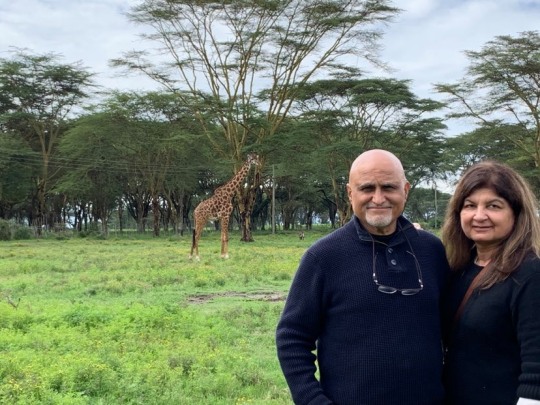
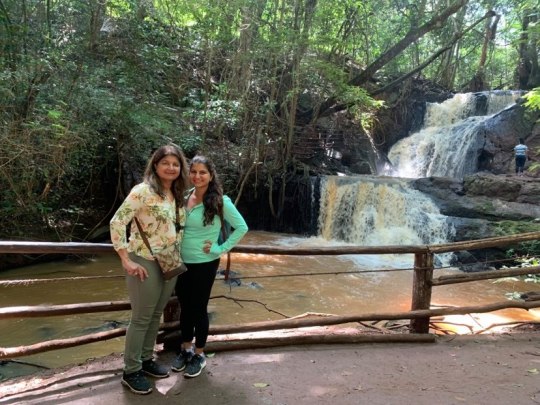
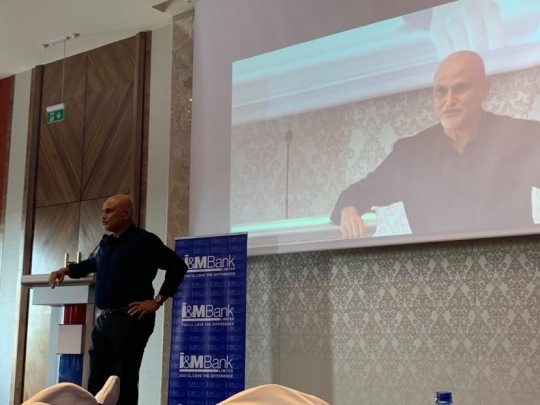
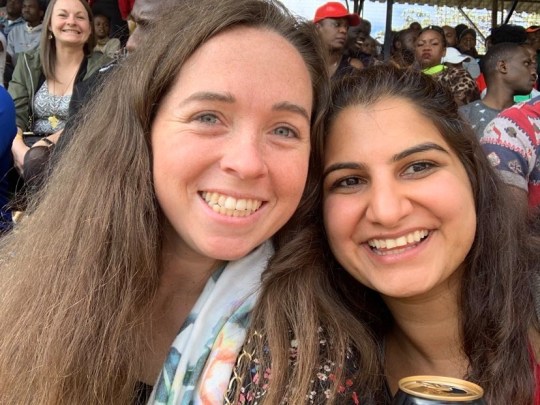
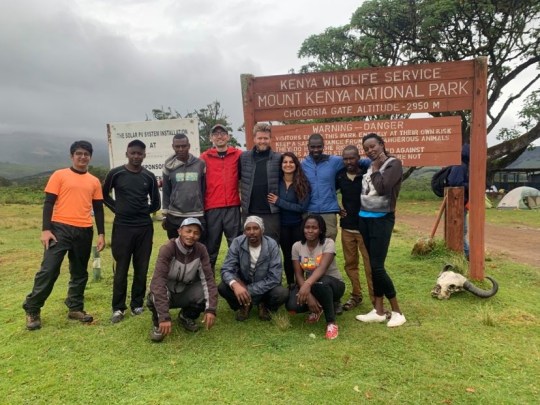
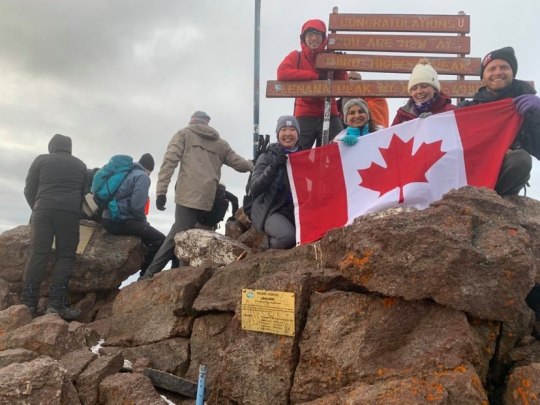
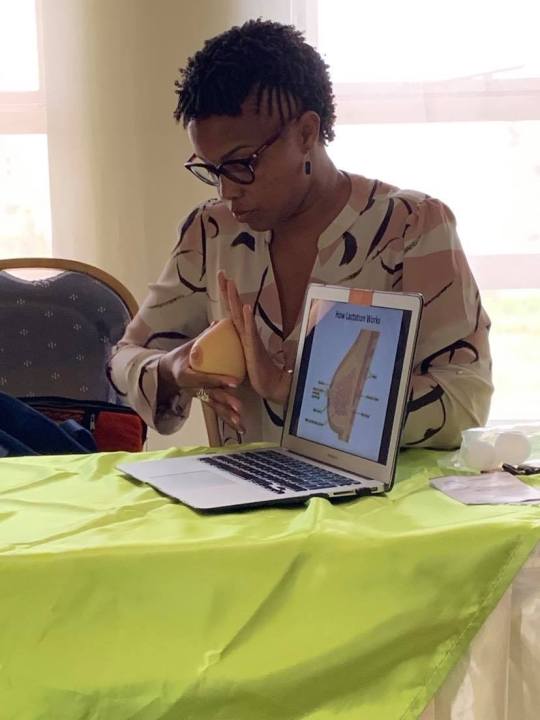
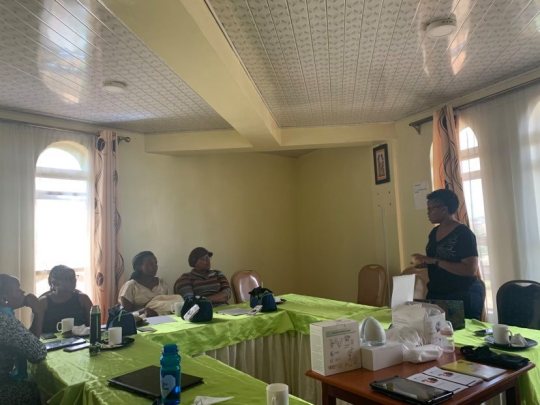
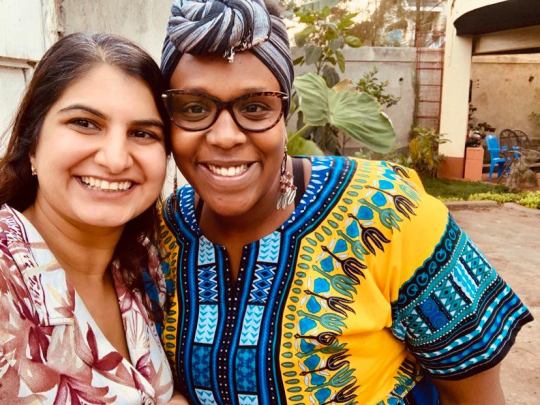
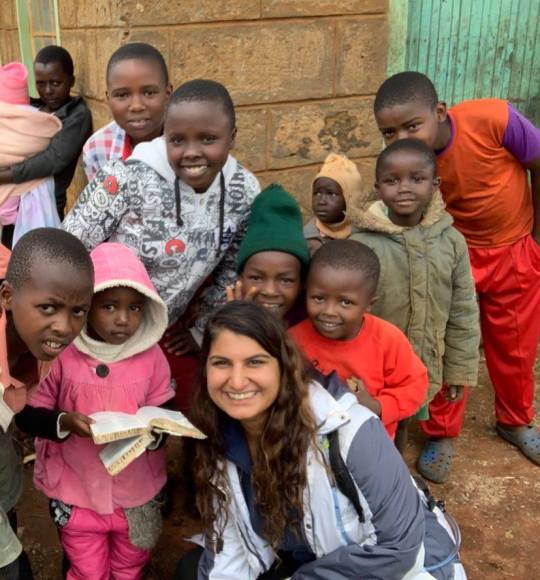
Even if my observations aren’t any more insightful, I’m hoping that, at the very least, my Swahili has improved after spending a few months here. Although I won’t lie, most of these sayings are from the interwebs (except the last one which is a Papa Jamal classic).
1. Umoja ni nguvu: Unity is strength
For anyone who has moved from a small rural town to a big urban city, you’ll know that one of the most noticeable differences is the level of diversity - in race, language, income levels, religious beliefs, political views, food, fashion, architecture, you name it… and often, this diversity is unfortunately correlated with conflict, violence, or a clash of civilizations.
Countries in Africa tend to benefit (or suffer) from this diversity inherently, thanks to the colonial legacy of how land was divided on the continent. Homogenous tribes and cultures were separated by borders arbitrarily drawn by European colonialists, creating some of the most ethnically diverse countries in the world. Nairobi, being a large, cosmopolitan African city, embodies this diversity on many levels: not only through a mix of Kenyan ethnicities, cultures, and perspectives, but also a smattering of the colourful mosaic of people who have immigrated here from across Africa and the rest of the globe.
At the risk of sounding like I’m making a political statement, which I am certainly not qualified to do yet, I would say that these diverse groups seem to live here in relative harmony. I wouldn’t go so far as saying Nairobi is safe - pretty much everyone who lives here has a story about a robbery or mugging (myself, unfortunately, included). However, given that its bordering nation, Somalia, known to be one of the most homogenous in Africa, has suffered from decades of unrest and infighting, you could conclude that greater diversity does not necessarily mean greater conflict.
Gaining a deeper understanding of Nairobi’s complex history has helped me untangle the resulting tapestry of cultures that has developed here over time, from large Bantu tribes like the Kikuyu, to the not-so-lovingly-named Kenyan Cowboys who remained here since the British rule, to the Indian ancestors of the railway labourers brought over by the Brits, the Arab traders who moved inland from the Swahili coast, to the more recent Chinese settlements that have formed as a result of their investments in infrastructure. Interacting with a broader range of communities here has given me a more nuanced perspective on the divergence between conservative and progressive opinions on religion, politics, gender roles, relationships, sexual orientation, family structure, and values that exist in this city. At the same time, I’ve been fortunate to experience the culture and creative expression that blossom from this juxtaposition of traditional and edgy, in the form of music, art, comedy, and dance, while also revelling in the ability to flip seamlessly from nature reserve to bustling city a heartbeat and switch between wellness retreat to raging nightlife within just a short Bolt ride. Though diversity can be seen in all flavours and colours here, Nairobians prosper by recognizing that there is more strength in unity than conflict.
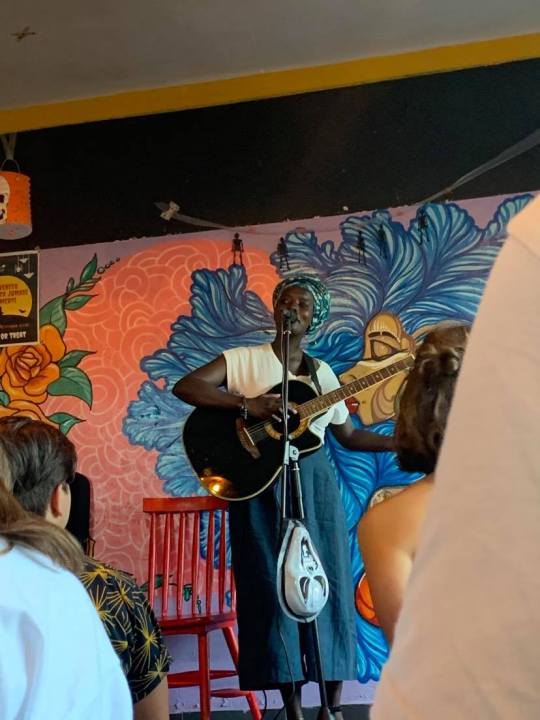
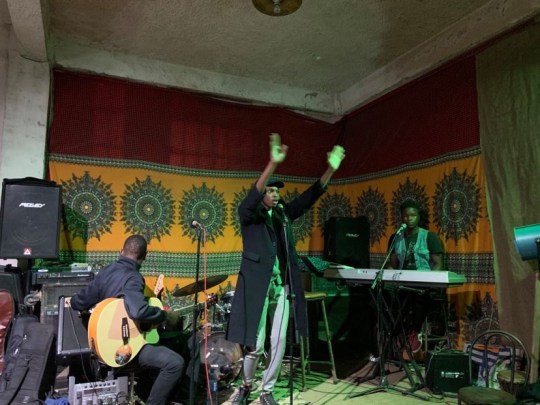
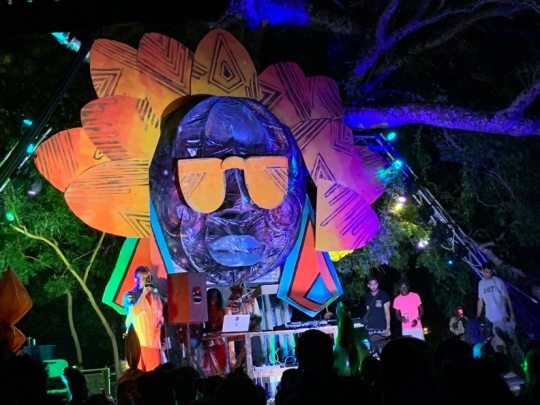
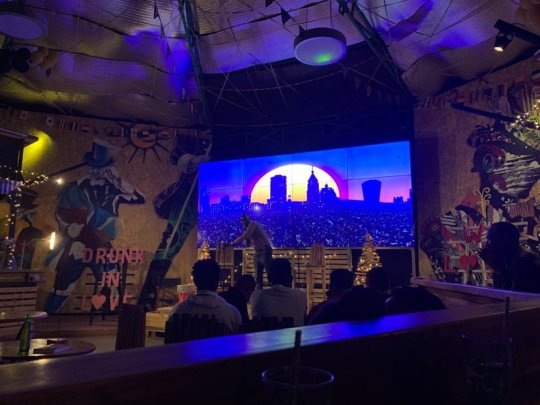
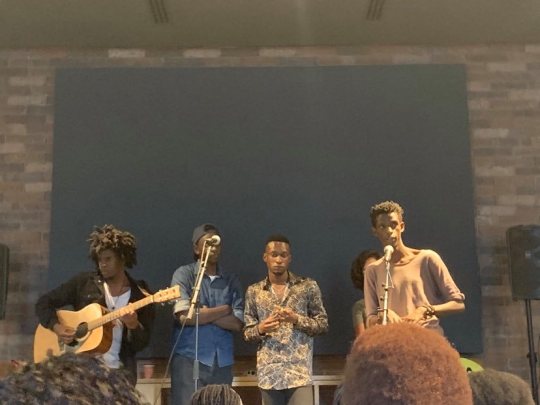
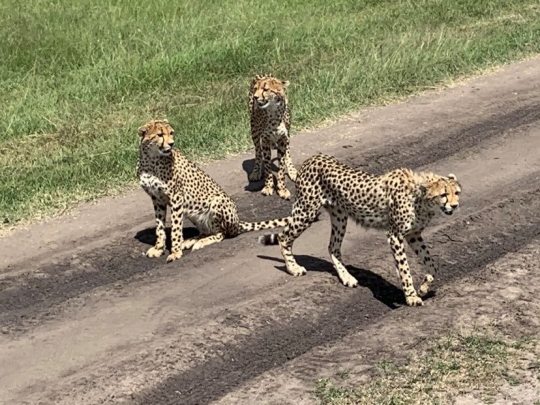
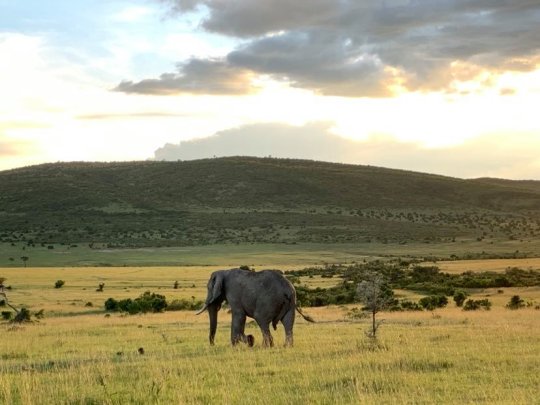
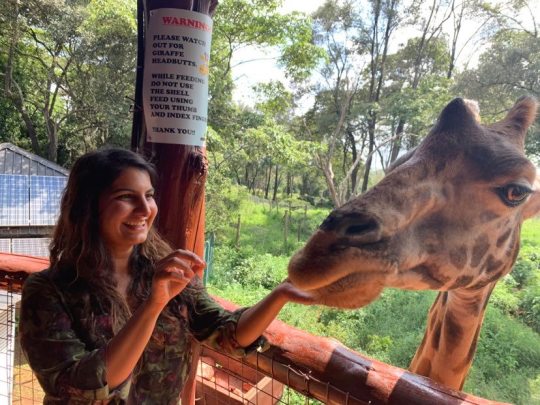

2. Adui wa mtu, ni mtu: The enemy of man is man
Of course, it’s not all sunshine and rainbows here (in fact, the rains had been non-stop for months!) - you can’t have a conversation about Kenyan life without addressing the vast inequalities and corruption that exist. For the billions of dollars invested in the country through grants, foreign aid, and impact investment, there are still gaping holes in infrastructure, healthcare and education that are yet to be tackled. It seems that politicians, public officials, donors, investors, and aid workers might be getting in their own way when it comes to making significant progress on the systemic issues that plague the country. The war on corruption makes daily headlines here yet many parts of policy making, procurement, regulation, and enforcement are driven by political agendas and misaligned financial incentives.
Even policy efforts that I generally support can by driven by a politicized PR angle. For example, Kenya’s ban on plastic bags, known to be the toughest in the world, took 10 years to implement and enforce successfully. While this policy has made a significant impact on waste management, animal health, and overall environmental protection, it was championed by a highly publicized race for implementation among East African governments. One could argue that the ends justify the means, now that 24 African countries have successfully banned plastic bag use, until you step back and consider the greater threats to environmental conservation like the widespread use of diesel fuel or practices like trash burning that are still prevalent in these countries. Similarly, and closer to home for me, much fanfare has been made about maternal employment and breastfeeding policies in local media, now that all employers are required to provide a lactation space for new mothers. However, due to their non-existent enforcement strategy, only 40 companies across Kenya have actually created lactation rooms so far.
While these political concerns may seem lofty, they can become significant considerations in making career choices and conducting daily life in this country. To commercialize a new breast pump in this market, I know I’ll need a well-connected network that spans government, regulatory bodies, distributors, retailers, healthcare providers, and key opinion leaders to counter the inevitable pressure to comply with the bribery and bureaucracy that often infiltrates these sectors. Many of the industry conferences I’ve attended aim to tackle these challenges by crowd-sourcing solutions within the community or, at the very least, encouraging key players not to concede to this systemic corruption.
On a daily basis, while it’s impossible not to confront your privilege as a foreigner living here, it is also difficult to know how to maximize your positive impact: do you donate to your favorite charity, give cash directly to the people begging on the street, volunteer for programs in the informal settlements, or advocate for further policy change and enforcement through your network? The complex system of incentives and unintended consequences make it impossible to calculate the net impact of your every action. Organizations like “Give Directly” have extensive research on the positive impact of unconditional direct cash transfers to individuals living in extreme poverty, which eliminate the potential bureaucratic redundancies of social interventions targeted at these communities. My personal conclusion is that as long as we aim to ensure that man does not become the enemy of his own good intentions in these efforts, we can work towards making a net positive social impact.
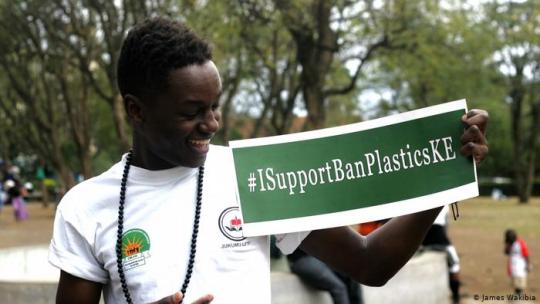
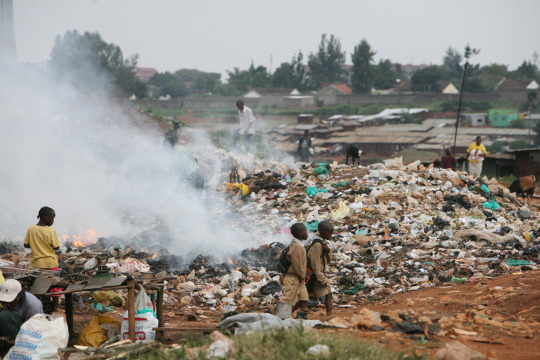
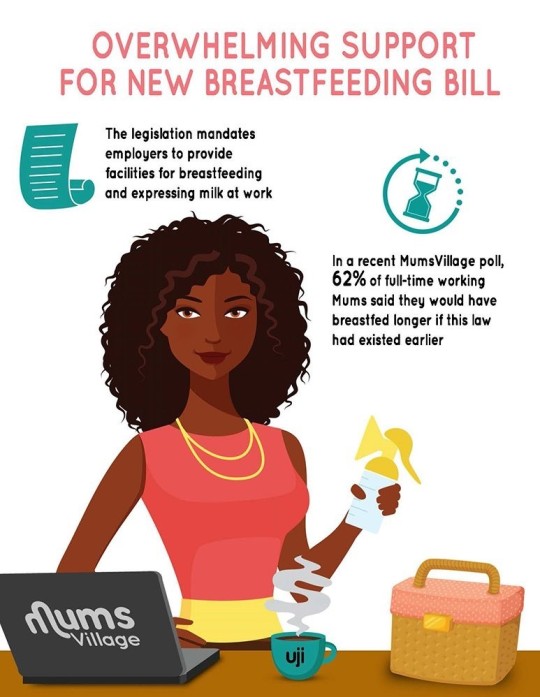
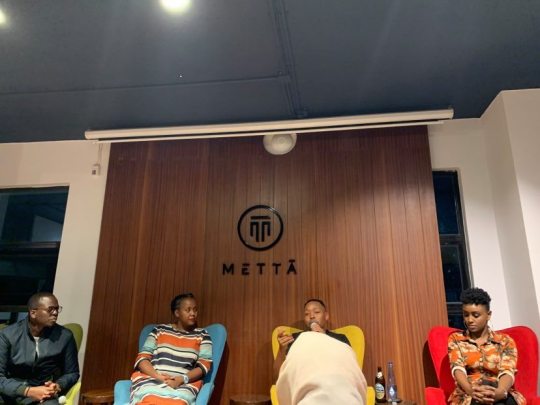
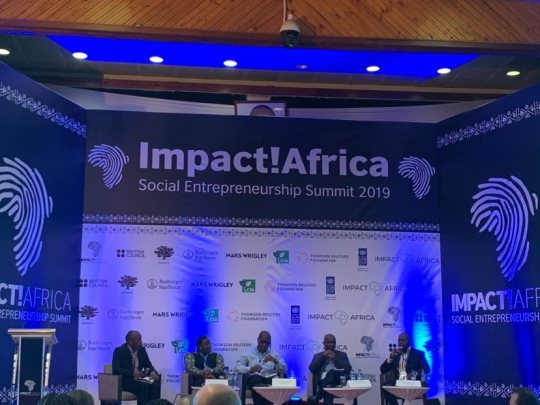
3. Haba na haba hujaza kibaba: Little by little fills the pot
Whatever qualms you might have with Kenyan society, if there’s one thing you can commend Nairobians for it’s their hustle. Everyone from your housekeeper to your manager is likely rocking a side-gig, whether its delivering Jumia orders or semi-professional stand-up comedy. Before Nairobi became a hotbed for entrepreneurship and terms like ‘impact investing’ were even invented, Kenyans had been pitching tents to sell their farm’s produce on the street and exporting their handicrafts around the world. Since then, strategic public and private sector efforts have continued empowering these entrepreneurs; for instance, through significant investments in enabling technology such as mobile payments.
All that to say, when it comes to innovative ideas and self-employment, I have known Nairobians to be extremely optimistic and perseverant. Which is why I am always pleasantly surprised to hear those three words that every girl dreams of, after I describe my business to any Kenyan: “It will work.”
This simple phase hits on a very special insight that is an important ingredient in the makings of every entrepreneur: an unabashed optimism that things will work out. And if they aren’t quite working yet, it’s only a matter of time and hard work until they do. Little by little, we will all get where we need to go.
When you are starting to build the foundation of a business and testing the assumptions that are the basis of your idea, this type of encouraging and frequent reassurance can make a world of difference. While it’s important to be realistic, or even borderline cynical, about the positive market feedback you receive in contrived research settings like focus groups, sometimes it’s just nice to take a moment and indulge in some external validation from a total stranger that you’re not totally out of your mind - “it will work”.
And this is the way we all support each other and survive here in our little bubble of dreamers and doers. Things are not always easy and sometimes you bump into cultural clashes or politics and bureaucracy, but these are all just hurdles in the rat race that we idealists happily skirt around in pursuit of our nobler ambitions. Knowing that we are all hustling and working towards the same broader goals, we gladly go out of our way to lend a hand, partner with each other, subsidize our services, and give free advice. Despite not living in an affluent country, people here are rich with positivity, tenacity, and generosity.
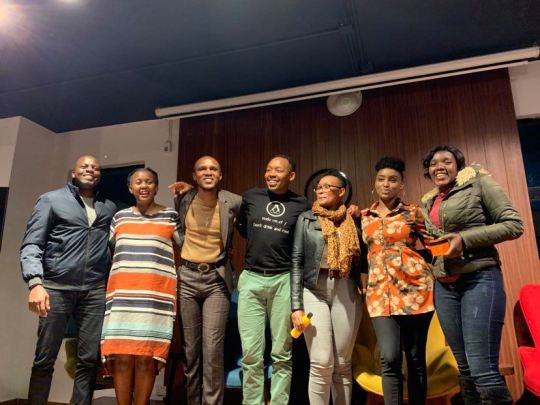

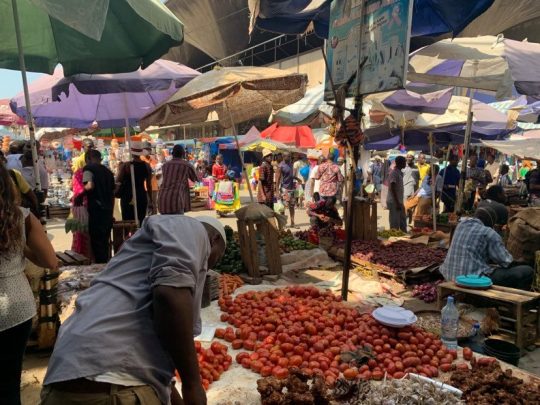
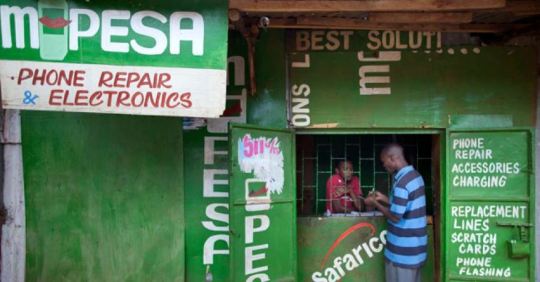

Asanteni sana! Until next time,
Sahar
0 notes
Text
The Year in Music

Happy 2018 people! Below you’ll find my annual list of my favorite tunes to come out of 2017. However, rather than merely provide you with commentary on what I think the world would be better off listening to, I thought it best to also use you people to vent other mindless ramblings through—specifically, my excessive opinions on today’s music in a broader sense, because despite whatever your thoughts may be on the world’s rather sorry 2017 campaign, I believe it’s safe to say the current state of music is in a wonderful place (or at its least, a better place than the nostalgia-minded would lead you to believe).
In terms of an industry stand point, the deciding factor obviously comes down to the platform in which music is consumed. Regardless of the optimism behind the vinyl revival, it’s no secret that today’s platform, and the platform of the foreseeable future is held down by the streaming giants of Spotify, Apple Music, and YouTube. However, with this reign has come the tiresome 2017 music publication debate of whether these giants can sustain the market, and whether such a market is beneficial to the artists and the music itself.
True, as a result of failures to acknowledge requirements of copyright law (and flat-out denial to compensate artists), Spotify is currently amid several well-deserving lawsuits that will substantially affect the future streaming landscape. Regardless though, this is America…and when faced with the possibility of its most valuable company (Apple) losing profits to a collective of upset musicians, or the possibility of a spoiled IPO (Spotify), you can almost guarantee our profit-minded/arts-averse lawmakers will take notice, as Congress has already demonstrated by their announcement of the Music Modernization Act (which would essentially and unfairly tilt copyright requirements in favor of these service providers).
Keep in mind that the recording industry is currently raking in more profits than ever, and is predicted to quintuple the all-time revenue highs seen during the CD-era by 2030 (all in the name of Apple Music and Spotify). Therefore, regardless of the income inequality war between artist/label/publisher/company, streaming’s insane financial effect on the music industry will make it near impossible that anything alters these tech giant’s path toward world domination. The earlier we accept this fact, and the earlier we accept these service providers for the deceptively monopolistic businessmen that they are (rather than the open-access saviors some claim them to be), the earlier we can acknowledge the not-so-obvious benefits this platform has to offer.
Obviously, streaming has allowed music to be far more available and convenient than ever before, where any person at any given place can access any song at any time for as many times as they desire. Although reliance on something purely out of convenience has its pitfalls in terms of quality, it’s my belief that this accessibility has led to a much more informed listener, which in turn has created a much more creative artist. For instance, unlike those whose influential capacity once depended on the records in their older brother’s stash, or only those CD’s/MP3’s that they were able to afford, today’s bored teenager can now fulfill their empty void for life by accessing all of the world’s music instantly…for as long as they choose…anywhere they want (whether it be one-off Thelonius Monk bootleg from 1958 or a just released Frank Ocean single). For those that might have an inclination toward actually creating music, the result will more likely be (and has been) an original sound formed by multiple genres, styles, and eras of music, as compared to a sound that emulates only those few records that they were able to get their hands on.
This is not me saying that today’s musicians are any more skilled than those of the past, or that today’s music is any greater in quality, but rather that streaming has simply given today’s musicians the capability of being much more musically-informed. This insight, along with the fact that any given person now has the ability to create and record music from any place they choose, has resulted in a new form of originality where the idea of genre is becoming less and less significant. When musicians aren’t constrained by a genre, the result is a world full of more interesting tunes built for longevity, and a world where listeners can unapologetically enjoy the music of all cultures. As someone who fully believes in music as the driving force behind culture as a whole, the societal payoff for such a blending of tastes is one that I can’t help but feel optimistic about.
To some, this all seems like a matter of over-availability, the result of which is a listen-and-ditch effect where the everyday consumer becomes so quick to move on to the next trend that they don’t have time to process what’s good and what’s not, better yet listen and respect a full album of work. For instance, rather than having no choice but to cherish and study an album/artist due to limited supply (a la Keith Richards with Chuck Berry or Eminem with Tupac), today’s youth are unable to get through even one of Spotify’s terribly force-fed playlist before being sent the next available thing. The result of which is new music that lacks the detail and influence it once had.
While I do agree that we’re in the midst of becoming a Black Mirror-like society full of mindless bots that stream, binge, and absorb anything and everything without retaining any of it beyond a mere surface level understanding, these types of listener shouldn’t be compared. There will always be those who care about and pay attention to music, and those who don’t. For instance, whether it be through a physical record or a stream, there will always be those who become so enchanted by a piece of music that they look to it for influence in their life, or even as the meaning of life all together. These are the ones that use streaming as a method to discover and consume a piece of music to the extent that some even seek to recreate the sounds (i.e. every musician). These are also the ones that have driven music venue openings and concert revenues to all-time highs, and are also the ones who have salvaged the physical market (emphasized by a 20% annual rise in vinyl sales and 35% for cassettes), which despite how cliché and Urban Outfitters-esq it has become, shows that people are once again appreciating the album in the way the artists intended, and are in pursuit of something more meaningful than the selected singles that are constantly shoved in their face.
Likewise, there will always be those who view music as holding no more meaningful value than being mere background noise to drown out whatever sociopathic journey they’re on (hence people’s reliance on playlists labeled “2000s & Chillin” and “Beards & Flannel”). There’s nothing wrong with listening to bad music, for just as much enjoyment or influence may be derived from Sugar Ray’s Music for Cougars as Sgt. Pepper’s Lonely Hearts Club Band. However, when one is unable to distinguish a difference in substance between Mark McGrath and John Lennon (or care enough to), something has gone terribly wrong. This is not a knock on those, but rather the obvious fact that different people look to different things for enjoyment and self-meaning. Nonetheless, regardless of the made up psychiatric standard I choose to separate the human race by, the one constant is that streaming benefits both.
Maybe this is all much too optimistic, as there are still plenty of problems with the music of today (i.e. the streaming giant’s control over what we hear, the decline in guitar bands, the disappearance of the guitar idol, mumble rap, Lil’ everybody, branding through social media rather than the music itself, diminishing local scenes, etc.). Or maybe none of this matters, as some new form of technology is certain to change up the future landscape of music. Regardless of my circular/overly drawn-out beliefs, the point I’m trying to get at is that music is currently in a wonderfully weird place for both the listener and the artist.
We’re living in a time where a group of 14 kids from Texas can form a “boyband” by means of meeting on a Kanye message board, move to Compton, release three critically-acclaimed/genre-bending albums all recorded in a bedroom, and set out on a largely sold-out headlining tour—all within one year (speaking of hip-hop collective “BROCKHAMPTON”); a time where John Mayer, who built a career as a TJ Maxx soundtrack, has become a well-respected replacement of one of our most historically sacred musicians in Jerry Garcia (whose fan base now consists of an entire new generation of twenty-something year old’s despite it being 40 years past the Grateful Dead’s golden-era); a time where many of these young Dead Heads may unapologetically be as equally big fans of present-day hip-hop culture as they are of the late-‘60s; a time where artists such as Sturgill Simpson and Jason Isbell are finally restoring the term “country”, which has been butchered by Vegas shows and the Florida Georgia Lines of the world for the last three decades; a time where one viral song from Ft. Worth can almost single-handedly bring mid-century soul back into the mainstream and catapult an artist from washing dishes to Harry Style’s tour opener within two years (Leon Bridges); a time where a group of white Canadian jazz artists calling themselves BADBADNOTGOOD are a bigger commodity in the hip-hop world than Timbaland (as their production/collaborations are seen all over the biggest names in the genre); a time where a legit garage-rock band has the capability of releasing five full-length/quality LPs in one year (King Gizzard & the Lizard Wizard); a time where the brostep/EDM shit storm of a phenomenon has finally met its end; and a time where out of pure luck and timing, bootlegs from the previously unheard vaults of Hendrix, Leonard Cohen, the Stones, Dylan, Neil, are being released (thanks to European copyright law which strips the rights away from any recording that sits unreleased for 50 years, forcing labels to release raw tapes that bootleggers got their hands on back in the day); etc. etc. etc. etc.
It’s a bit dramatic, I know, but you get the point. Whether it be changes in technology, people, or the music itself, several things have made it tough to be upset with the overall big picture of music right now. In my opinion, nothing better represents this point than the music of 2017. While I do believe numerically ranking music is a pointless and ineffective way of explaining my love for a piece of music or an artist (considering the differences between bests and favorites, and considering opinions vary with moods), I’ve attempted to dramatize things a bit for you dear readers by listing my favorites of 2017 in somewhat of an orderly fashion.
16. Bedouine: Bedouine

Beautiful acoustic tunes from Syrian-born/Saudi-raised/L.A.-established Azniv Korkejian, that conjures up the obvious guitar-toting females of the early 70’s folk scene (a la Joni Mitchell and Joan Baez), while also staying close to the simplistic feel of JJ Cale and Nick Drake.
Essentials: “Nice and Quiet”, “One of These Days”, “You Kill Me”
Listen on Spotify
15. King Gizzard and the Lizard Wizard: Gumboot Soup

As mentioned above, the rate at which these Australian pych-rockers put out music this year is just insane. As if one album each of the last three years wasn’t enough, the band promised five full-length releases in the 2017 calendar year, which Gumboot Soup satisfied with its December 31st release. While each of the five offer plenty of flavors ranging from the glam-rock sounds of T-Rex, the prog-rock sounds of RUSH, and Miles Davis-inspired improvisational-jazz, Gumboot Soup offers the most complete and accessible tunes of the bunch. Although you won’t find a catchy radio-friendly standout, what you will find is a truly unique brand of rock music that’s appeal stems the band’s ability to tap into this historical vault of sounds, as well as their tendency to think outside of the box (i.e. Basing an entire album off of a custom-made microtonal guitar).
Listen if you like: Ty Segall, Mild High Club, Black Lips
Essentials: “Beginner’s Luck”, “Muddy Water”, “The Last Oasis”
Listen on Spotify
14. Dr. Dog: Abandoned Mansion

Known for their experimentation and eclecticism, Dr. Dog had yet to put out an album that I’ve truly loved all the way through—that is until Abandoned Mansion. Here, they ease off their psych-rock capabilities for a more folk-driven pop record that’s further reminiscent of The Beach Boys than it is the ELO-like sound of their previous few efforts. Although the majority of the tunes are acoustic and laid back, the album offers plenty of memorable hooks and entertainment. In the band’s own words, it’s “easy peasy listening…no blips or bloops or anything else that might unsettle you.” This may seem like layup for a band that prides themselves on challenging their audience through experimentation and risk taking. However, what it is to me is underratedly good music from an underratedly good band that was just looking to challenge themselves in a different way.
Listen if you like: My Morning Jacket, Dawes
Essentials: “Ladada”, “Survive”, “Abandoned Mansion”
Listen on Spotify
13. Toro y Moi: Boo Boo

By now it’s no secret that Chaz Bundick aka Chaz Bear aka Toro y Moi is an unpredictable man of many forms. Since beginning as the pioneer to the unfortunately named “chillwave” movement, he then released electronic dance music under the name Les Sins, released a 70’s-infused guitar-rock album reminiscent of Big Star, recorded a live album performed in an empty Californian desert with no audience, created and toured with twin brother jazz duo the Mattson 2, and is now back with his most ambitious/strangest/possibly best Toro y Moi album to date in Boo Boo. While it feels like a concept album intentionally targeting the 80’s sex scene sounds of Top Gun, it’s actually a calculated demonstration of Bundick’s insane ability to change face, disregard whatever sound previously brought him success, and fully execute an interpretation of whatever music/things are currently influencing him. Luckily for us, Bundick’s influences this time around included Frank Ocean, Daft Punk, Oneohtrix Point Never, cheap early-80’s synths, and a nasty breakup, resulting in nostalgic/honest/R&B pop jams.
Essentials: “No Show”, “Girl Like You”, “You and I”
Listen on Spotify
12. Grizzly Bear: Painted Ruins

After years of non-stop hype (heightened by constant critical praise, claims from Radiohead’s Johnny Greenwood that they’re his favorite band, and Jay-Z/Beyonce/Solange showing up to shows), Grizzly Bear was a band that I was guilty of wanting to like—guilt that stemmed from the old adage of when you’re told enough times that something is good, surely it must be good right? Nonetheless, other than their 2009 Volkswagen-induced-mega-hit, “Two Weeks”, I couldn’t make it through a single song. Instead, I found their position as indie-rock royalty simply a matter of someone having to fulfil such a title. Fast forward to my gazzilionth run through Painted Ruins, and RIP my 2004 – 2016 self.
Contrary to the easy listening of Dr. Dog’s Abandoned Mansion, the beauty behind Grizzly Bear’s first album in five years is what it demands from the listener. Elaborate and multi-layered, Painted Ruins illustrates the unreal multi-instrumental talent of each member and their overall attention to detail (i.e. each snare sound, guitar tone, bizarre chord choice, etc.). This in turn requires several listens, but also allows the listener to discover new things each time. Combining these intricacies with Ed Droste’s New Wave/Morrissey-esq voice would regularly make for something convoluted and overly dramatic, but as a Grizzly Bear’s tunes always do, they somehow use these elements to create eleven sophisticated pop-rock songs that become more enjoyable with every listen. If you’re one who refers to music as mindless background noise, this album isn’t for you (though it’s unlikely you would have read this far), but if you like to have an album grow on you and take shape with every listen, spin ittttt.
Essentials: “Mourning Sound”, “Four Cypresses”, “Neighbors”
Listen on Spotify
11. BROCKHAMPTON: SATURATION I, II & III

Similar to King Gizzard’s prolific nature, this self-proclaimed “boyband” made their impact felt in 2017 by releasing an impressive amount of music with an even more impressive level of quality. After locating to a home studio in Compton, the group (which consists of 7 lyricists, 4 producers, a photographer, a creative director, and a web developer) went on to self-release three completely legit hip-hop albums within the year (SATURATION I, II, & III), each one showing more creativity and substance than the last. In doing so, they’ve also created an online-fueled hip-hop subculture occupied by a bunch of rabid kids that seem to have been waiting for something just like BROCKHAMPTON (see live videos for proof). This is largely in part to the fact that their music translates to any hip-hop fan, regardless of whether you’re a hip-hop-head that takes pride in your historical knowledge and taste for the genre, a fist pumping meathead yearning for party jams, or an angst-ridden teen attracted to your own gender that’s looking for a musical form of representation.
Whether this rate of output and quality is sustainable, I don’t know…but for those looking for something refreshing, I highly recommend it. Once you dive in, you’ll quickly realize this isn’t just some online craze fueled by kids—the talent is legit, the music is inviting, and the model in which the group is operating is something completely new that I expect will lay the ground work for similar groups in the future.
Essentials: “SWEET”, “BOOGIE”, “BLEACH”, “STAINS”, “GUMMY”
Listen on Spotify
10. Goldlink: At What Cost

With the help of production savants Kaytranada and Steve Lacy, Goldlink cooks up the year’s most fun and most underrated electronic-infused hip-hop of the year in At What Cost. While artists such as Kendrick and J.Cole make their impression by touching on personal/societal issues, Goldlink’s music instead represents a form of escapism—flexing his abilities through stories of women and his hometown D.C., making for constantly enjoyable tunes that focus on Goldink’s unique rhythmic vocal style rather than a continual reminder that the world’s on fire.
Essentials: “Herside Story”, “Summertime”, “Crew”
Listen on Spotify
9. Mount Kimbie: Love What Survives

In Love What Survives, Mount Kimbie expands on the post-punk sounds of the late-70’s (a la Joy Division/The Cure) by using an array of synths to further their self-established genre coined “post-dubstep” (most notably shared by James Blake and Jamie xx). Though it’s technically electronic-based music, the band’s use of live instrumentation and their choice of rhythms make it feel anything but. All in all, the album is a mixed bag of sonically pleasing tunes that get better and more interesting with every listen.
Listen if you like: Radiohead, James Blake, Carribou
Essentials: “Marilyn”, “Blue Train Lines”, “SP12 Beat”
Listen on Spotify
8. Kamasi Washington: Harmony of Difference

After gaining recognition for his work on Kendrick’s To Pimp a Butterfly, as well as for his development of the West Coast Get Down (the L.A. jazz crew including the likes of Thundercat, Miles Mosley, and Cameron Graves), Kamasi hit the scene in 2015 with his debut The Epic, an insane three-hour burner that landed him on major festival bills across the country and on the same label as The xx (further emphasizing his defiance toward the status quo of jazz). This year, deterring from the hectic and complex nature of his debut, Kamasi has gifted us one of the most accessible, catchy, and relaxing instrumental albums you’ll come across. Whether you’re all jazz or no jazz, Kamasi’s saxophone and composition talents should be heard, especially if you’re one who has been looking for something to get them into the genre.
Essentials: “Knowledge”, “Truth”
Listen on Spotify
7. Kevin Morby: City Music

In 2016, Morby left New York for L.A. to release one of my all-time favorite albums in Singing Saw. The result of which was widespread critical acclaim for a 28 year-old singer-songwriter that had spent the majority of his New York years hopping around indie bands like Woods and The Babies. Little did we know that shortly after Singing Saw’s release, Morby and his band were right back in studio conjuring up more amazing tunes that would comprise City Music. If Singing Saw is his L.A. album (as depicted by the cover art and the overall desert feel), City Music is definitely his New York album, as the influences of Lou Reed and early-70’s New York are evident throughout the record (even including an unlikely Ramones cover). Though the guitar playing and upbeat arrangements represent more of an overall rock ‘n’ roll feel, City Music still stays true to Morby’s rambling/melodic vocal approach, making it impossible to duck the obvious comparisons to Cohen and Dylan. While I think these comparisons are too easily thrown around, where Morby deems himself worthy of such praise is in his ability to use these influences while also applying modern elements to his music (including the indie/garage-rock sounds of his previous groups). The result is a completely distinct singer-songwriter sound that is no better displayed than in City Music.
Listen if you like: Angel Olsen, Kurt Vile, Lou Reed less the heroin
Essentials: “Cry Baby”, “City Music”, “Tin Can”
Listen on Spotify
6. SZA: Ctrl

Just nine months ago, hardly anybody knew who SZA was. Those that did had written her off after numerous delays of her debut. Fast forward to now, she has a certified-gold album, several platinum singles, five Grammy nominations, has an SNL performance under her belt, and is set to headline major festivals throughout 2018—she’s everywhere, all showing just how insanely good her long-awaited debut is.
Taking elements of R&B, hip-hop, and indie-rock, CTRL represents a new form of radio-friendly pop music dominated by the actual talents of a singer-songwriter rather than a record label’s ability/tendency to market any black 26-year-old female through sex appeal. On that note, while many may at first glance hear a female R&B artist singing over hip-hop-laden beats and immediately think to Rihanna, the reality is that SZA’s ability and substance goes so much further. Her beyond-personal subject matter, her harmonized raps, her off-cadence delivery, her ability to create sustainable hooks, and her calculated way of weaving in and out of a beat while always feeling natural, offers something more reminiscent of Frank Ocean and Lauryn Hill than it does the many Rihanna’s out there that represent more of an idea or symbol than they do a musician.
However, CTRL’s most notable asset is in its humanization—SZA’s ability to connect to the listener by speaking on everyday thoughts and situations. While most artists would find this subject matter overly awkward or unmarketable (ex. being a time-sharing side-piece) SZA instead thrives on it, using these stories and insecurities in a way that solidifies her as a real person doing real person things rather than one who’s everyday conscious revolves around life on a private jet. By doing so, her words become believable, which when combined with the album’s strong production, makes for an impactful hour of jams.
Essentials: “Supermodel”, “Love Galore”, “The Weekend”, “Broken Clocks”
Listen on Spotify
5. Four Tet: New Energy

Shifting between an array of electronic sub-genres by sampling acoustic instruments and global sounds (harps, steel drums, strings, horns, etc.), Kieran Hebden has been able to establish the “folktronica” identity of Four Tet which has carried him among the top electronic musicians for the last decade. This year, rather than bringing something completely new to the table, New Energy extends this organic sound to formulate an overall carefree/well-spent hour of tunes that you’ll quickly forget is computer-based music. When it comes to certain electronic/experimental music, it’s tough pin-point exactly why it makes the impact that it does, which explains exactly why it’s so appealing. An album like New Energy is a meticulously-constructed collection of soundscapes that need to be heard and felt rather than over-analyzed and read on. For those in need of some work/study/productivity-inducing tunes, or for those in need of some overall downtime, please check it.
Essentials: “Two Thousand and Seventeen”, “Lush”, “Planet”
Listen on Spotify
4. Beach Fossils: Somersault

While you can find plenty written up on the majority of this list, Beach Fossils have somehow managed to go almost completely unnoticed by the appointing sector of the music world (for whatever that's worth), making Somersault easily my most underrated album of the year. After years of making messy DIY indie-rock, project creator Dustin Payseur finally finds an identifiable sound in Somersault, which comes off as Brooklyn gloom as it does LA beach rock. In it, Payseur still resorts to his lo-fi/reverb-filled shoegaze methods. However, by collaborating with other band members for the first time, as well as incorporating strings, flutes, and fitting keyboard play, he does so in a way that is much tighter and more sonically thought out than his past work. Whichever way you analyze it, Somersault is an incredibly accessible and fun album that’ll provide you with classy indie-rock jams that fit any mood, whether melancholic or optimistic.
Essentials: “This Year”, “Sugar”, “Down the Line”
Listen on Spotify
3. Kendrick Lamar: DAMN.

Artists in the realm of Kendrick shouldn’t still be on these lists. Being one of the most well-respected and sought after cultural figures of the last decade, already with two of the most distinguished hip-hop albums of all-time, Kendrick should be slowly losing touch with the realities in which his lyricism relies on (i.e. see the effects of Drake’s jet ski escapades with DJ Khaled on his last few album cycles). Instead, 2017 has been his most prolific and creative year of his career, spearheaded by the release of his fourth completely genius album within a five-year span (as well as his 3rd Album of the Year Grammy nomination in as many years). Not since Andre 3000’s five album run with OutKast has someone touched this rate of output, quality, and innovation (sry Big Boi).
Already creating a rallying cry for America’s marginalized in To Pimp a Butterfly, DAMN. instead turns inward, emphasizing his own personal journey to the top. Doing so, he recognizes the aforementioned effects of fame on his own conscious and morality while also furthering his thoughts on the irrationality of our country and those in power. Just as To Pimp a Butterfly inexplicably managed to make a middle-class white 23 year-old feel as though he understand the perils of minority life in South Central L.A., DAMN. creates a world in which Kendrick’s personal issues are once again relatable (though they clearly shouldn’t be).
In terms of overall feel, DAMN.’s production choices more closely represent the hit-making nature of Good Kid, M.A.A.D City (which explains its reign on the charts). However, the complexities and risks seen in To Pimp a Butterfly are still evident (i.e. successfully throwing Bono on a hip-hop track!?), making DAMN. arguably Kendrick’s most encompassing work to date. Withholding personal comparisons and over-analyzation into everything Kendrick, what it comes down to is that DAMN. is a deep yet fun album that fulfills both the need for introspective thought and the need for party jams.
In a time where people are resorting to mumble rap and Cardi B as an outlet of entertainment, it’s beyond refreshing to know that a quality-driven artist like Kendrick can still amass billions of streams and fame without sacrificing any originality or overall vision. Being at the top of his game while only 30 years-old, we shouldn’t expect this rate of fame or quality to show any signs of slowing down.
Essentials: For those that question Kendrick’s ability, please resort to “DUCKWORTH”
Listen on Spotify
2. Sampha: Process

Hearing his voice all over recently acclaimed records (Drake’s “Too Much”, Frank Ocean’s “Alabama”, Solange’s “Don’t Touch My Hair”), as well as his signing to XL Recordings (Adele, Radiohead, White Stripes), all before the release of his first album, it’s safe to say Sampha’s debut was as hyped as an album can get. Despite the buildup, he delivered one of best and most personal albums of the year (which won the 2017 Mercury Prize for Britain’s best album). Following the passing of both parents to cancer, Process details Sampha’s coping with the situation, which when combined with one of the most uniquely soulful voices out there, makes for something incredible. Solely writing and producing the entire album (less a little help from Kanye & Rodaidh McDonald), Sampha blends elements of soul, hip-hop, and electronic in a way that restricts him or the album from being compared to the work of any other artist. Process uses this singular style to form a collection of songs that while catchy and pop-driven, remain musically complex enough to make for much more than a mere passive listen. Even if R&B isn’t your thing, the album’s ballad “(No One Knows Me) Like the Piano” will undoubtedly hit you in the feels.
Essentials: “(No One Knows Me) Like the Piano”, “Reverse Faults”, “Incomplete Kisses”
Listen on Spotify
1. The War on Drugs: A Deeper Understanding

Last year, following the success of their previous opus, Lost in the Dream, the band announced their departure from indie-bebe Secretly Canadian to the all-mighty Atlantic records. As their first gesture under the label, they dropped an 11-minute space odyssey of a single in “Thinking of a Place,” which drones of more noise and less hooks than any song of the album, quickly settling any worries about the changeover. The songs that followed were equally as appealing, making A Deeper Understanding my clear cut favorite album of the year.
Taking elements of experimental rock (a la Sonic Youth), shoegaze (a la My Bloody Valentine), and the synth-driven sounds of the acceptable few in the new-wave era, A Deeper Understanding expands on the Springsteen-like heartland sound of The War on Drugs, making it Adam Granduciel’s biggest and most ambitious work yet (especially considering he wrote, produced, and played almost the entirety of the album). While the songs are dense with reverb, synth, and scattered guitar solos, Granduciel’s OCD-fueled attention to detail (along with the help of an Atlantic budget) harnesses these layers of chaos to create an aesthetic that’s complex yet full of space.
Another element that’s clear throughout the album is Granduciel’s growth as a guitarist. In a recent interview, he detailed how watching Neil Young from the side of the stage influenced him to use the instrument in completely new ways (building on Neil’s ability to look and sound like a possessed animal). The result of which are hectic/patient/impactful Neil-like riffs that come from somewhere much deeper than a mere technical ability to run through guitar scales. Similar to how an underlying bass rhythm shapes dance music, these solos shape the entirety of the album, serving as an effective peak of each song (some of which have multiple). This instrumentation combined with his Dylan-inspired vocal approach makes for a timeless album that fits any mood (whether calm or upbeat) and any listener (whether seeking radio-friendly pop hooks or spaced out guitar jams).
In a time where guitar bands continue to see their popularity decline (as 2017 became the first year where hip-hop surpassed rock as music���s most consumed genre), it’s bands like The War on Drugs that we shouldn’t take advantage of. They’re a genuine rock band that have spent the last decade grinding out time on the road and in the studio before fully realizing their sound and finding real success. Even with this success, their approach hasn’t changed—no gimmicks, very little press, an unbelievable live show that takes importance over everything else, and studio tunes that have evolved with each album.
Essentials: “Pain”, “Strangest Thing”, “Thinking of a Place”
Listen on Spotify
Other Favorites: Thundercat: Drunk, Jay Som: Everybody Works, Los Colognes: The Wave, Makaya McCraven: Highly Rare, Tyler, the Creator: Flower Boy, Japanese Breakfast: Soft Sounds from Another Planet, Neil Young: Hitchhiker, John Moreland: Big Bad Luv, Twain: Rare Feeling, Anti Lilly & Phoniks: It's Nice Outside, Big Thief: Capacity, Cornelius: Mellow Waves
For those interested in a quick way to hear all of my 2017 favorites, check the playlist:
by Connor Fields
tweet tweet
#bedouine#kinggizzardandthelizardwizard#dr. dog#toroymoi#grizzlybear#brockhampton#goldlink#kamasi washington#kevinmorby#sza#fourtet#beachfossils#kendricklamar#sampha#thewarondrugs#top albums of 2017
0 notes